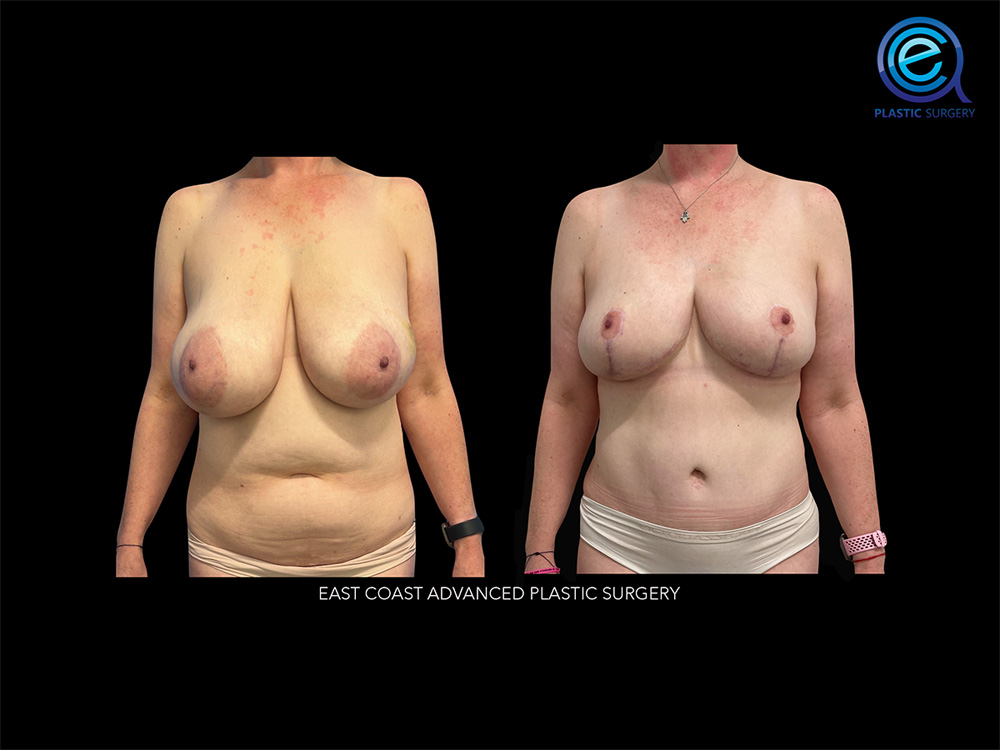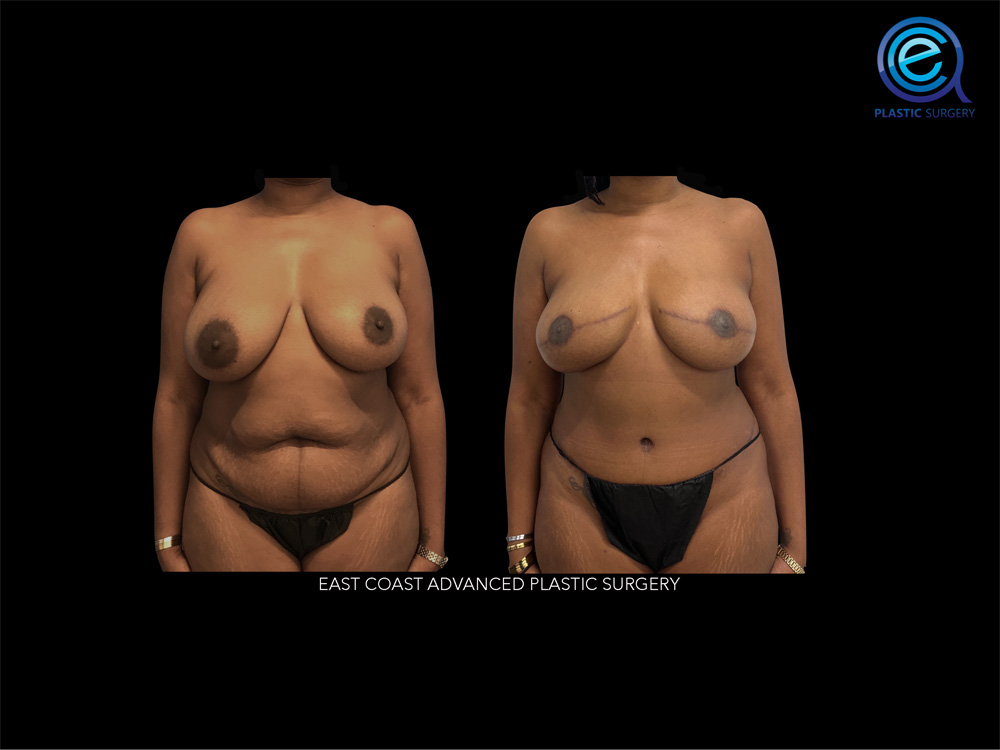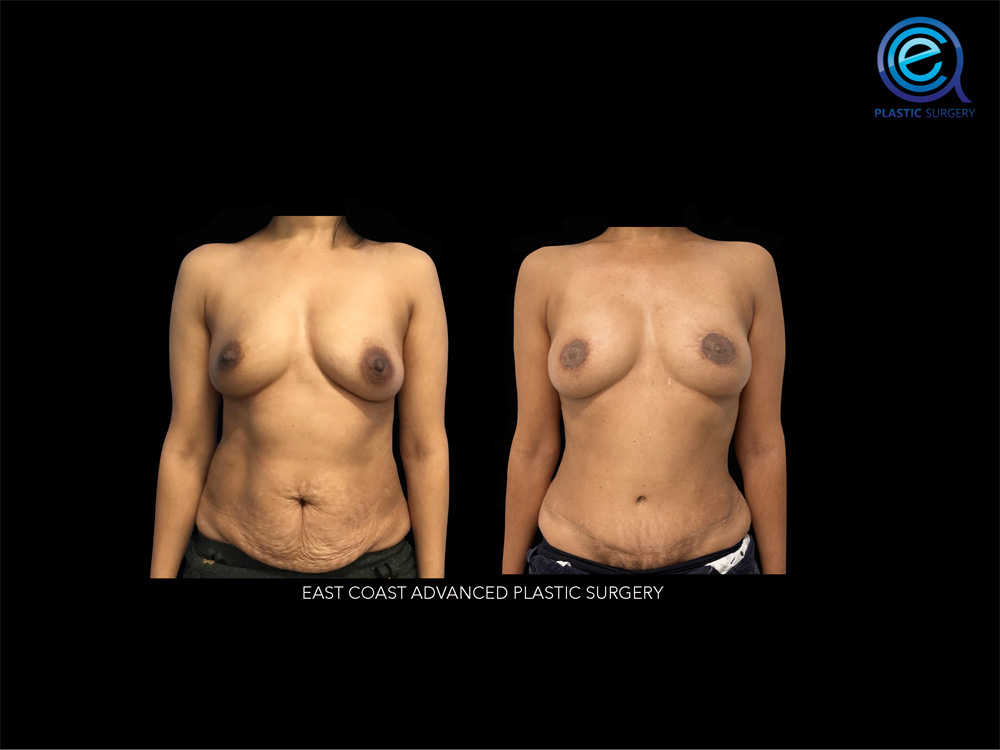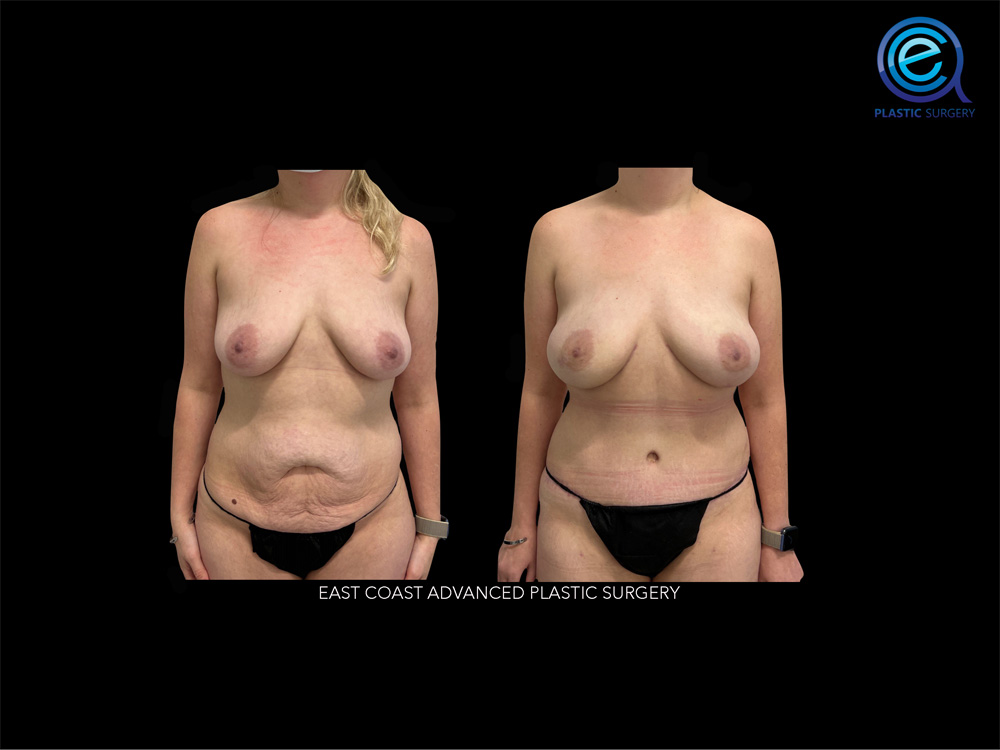Tissue-based breast reconstruction is breast reconstruction surgery that uses a patient’s own tissue, typically from areas like the abdomen, thighs, buttocks, or back, to reconstruct a natural-looking breast after a mastectomy.
FLAPS involve relocating your skin, fat, muscle, and sometimes blood vessels from a donor area of the body to the chest to form a new breast mound. This technique can provide a more natural look and feel than implants.
There are different types of tissue-based breast reconstruction, including:
- DIEP Flap (Deep Inferior Epigastric Perforator Flap): This procedure uses tissue from the lower abdomen, similar to a tummy tuck, to create a breast. The key advantage of the DIEP flap is that it preserves the abdominal muscles, reducing the risk of abdominal weakness or hernias.
- TRAM Flap (Transverse Rectus Abdominis Myocutaneous Flap): This method also uses tissue from the lower abdomen, but it involves taking both skin, fat, and abdominal muscle. While it offers excellent breast reconstruction, it can weaken the abdominal wall.
- TUG Flap (Transverse Upper Gracilis Flap): This procedure takes tissue from the inner thigh, particularly a small muscle that helps with leg movement. It’s a good option for women who may not have enough tissue in the abdomen or buttocks.
- IGAP Flap (Inferior Gluteal Artery Perforator Flap): In this procedure, tissue from the lower buttocks is used to reconstruct the breast, making it ideal for women who don’t have enough abdominal tissue or prefer not to use abdominal fat.
- SGAP Flap (Superior Gluteal Artery Perforator Flap): Similar to the IGAP flap, but it uses tissue from the upper buttocks. It’s an option for women who may not be candidates for other types of reconstruction, providing a natural result with tissue that integrates well.
- LD Flap (Latissimus Dorsi Flap): This technique uses muscle, fat, and skin from the back to form a breast mound. It’s often used in combination with implants for a more natural look.
*Each of these procedures is designed to create a breast that feels and looks natural, using the body’s own tissue for a more personalized, long-lasting result. Tissue-based breast reconstruction can be a transformative option for women seeking a natural, permanent solution after a mastectomy.











